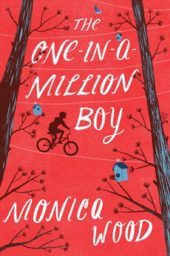Hachette Australia
12th April 2016
Paperback
$29.99
 Imagine for a moment. Imagine turning a hundred. Imagine turning a hundred and receiving a letter from Queen Charlotte herself.* Are you imagining it? If you are, I’m going to have to ask you to step away from any sharp objects and stop being so utterly ridiculous. A royal head of state by the time you’re a hundred? Are you mad? No, you’re much better off deciding which world record you should aim to be the oldest person to achieve. Much more likely.
Imagine for a moment. Imagine turning a hundred. Imagine turning a hundred and receiving a letter from Queen Charlotte herself.* Are you imagining it? If you are, I’m going to have to ask you to step away from any sharp objects and stop being so utterly ridiculous. A royal head of state by the time you’re a hundred? Are you mad? No, you’re much better off deciding which world record you should aim to be the oldest person to achieve. Much more likely.
Miss Ona Vitkus has the right idea. At a hundred and four she has some way to go to join the ranks of oldest living person but she’ll certainly die trying. Of course, it took the boy to get her interested in life again. Assigned by his scout troop to help her every Saturday, it doesn’t take long for Ona to open up to the little boy, so odd and different from his contemporaries. She finds herself recalling her past for him and in doing so, she slowly unlocks a past buried so deep she hadn’t realised it was still there.
However, on the tenth Saturday the boy does not appear. On the twelfth, his father turns up instead. Determined to finish what his son had begun, Quinn isn’t to know that this will include finding a friend in Miss Ona Vitkus.
For Quinn, a professional musician and absentee father, completing the boy’s assignment is all he can do. Never having truly connected with the boy emotionally, the guilt he feels for barely being able to grieve is almost punishment enough. His inability to grieve is made even more evident to him in contrast to Belle’s grief—the boy’s mother and Quinn’s twice-ex-wife. He finds it easier to lament his music career, which, while competent and stable, could hardly be called inspired. With Ona’s hundred and four year example of a life lived, Quinn must come to terms with his own middle-age and the probability that he will never reach the kind of musical immortality of the truly talented.
Throughout the book we see Ona’s life as she recorded it on the boy’s Dictaphone. For a relatively absent character the boy looms large, almost eerily so when it comes to the one-sided recordings—his questions absent, only Ona’s answers to be heard. We learn of her marriage, her sons, her Lithuanian immigrant parents, friendships, betrayals. It’s all there on tape.
The One-in-a-Million Boy is a lightly humorous, somewhat touching, rambling tale about the loss of a child, yes, but mostly about growing old—the artificial, usually successful constraints imposed by society and the natural, mostly successful constraints imposed by the body.
It is also a story about unlikely friendships. Why not make friends with a hundred and four year-old today?† If someone’s life has spanned almost the entirety of the 20th century, chances are they are going to be pretty damn cool.
*I am well aware of the order of succession, thank you very much. But, if I may say so, and without a treasonous intention in mind, I don’t think it’s going to pan out.
†On a school trip to the zoo I remember quite distinctly sitting down on a bench to tie up my shoe lace and immediately attaining a ninety year-old friend. At least my eight year-old self assumed he was ninety. Everyone older than me at that point was surely ninety or thereabouts. Anyway, the point is as a child, and even now, older people tend to gravitate toward me. For chats, general information, facile observations on the weather, you name it.

